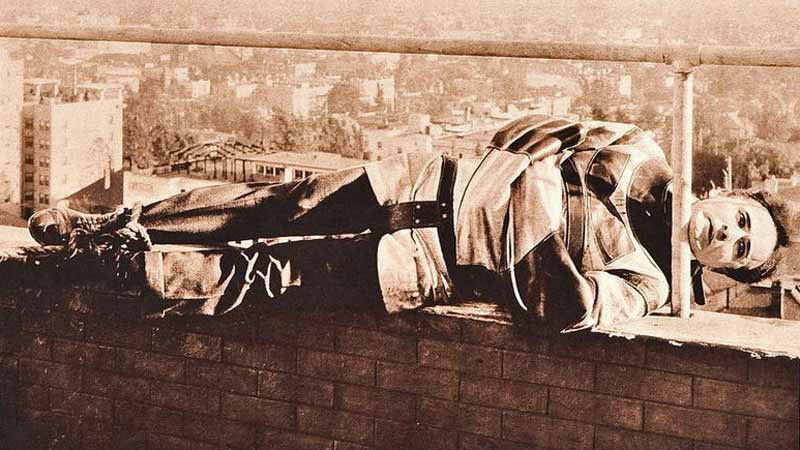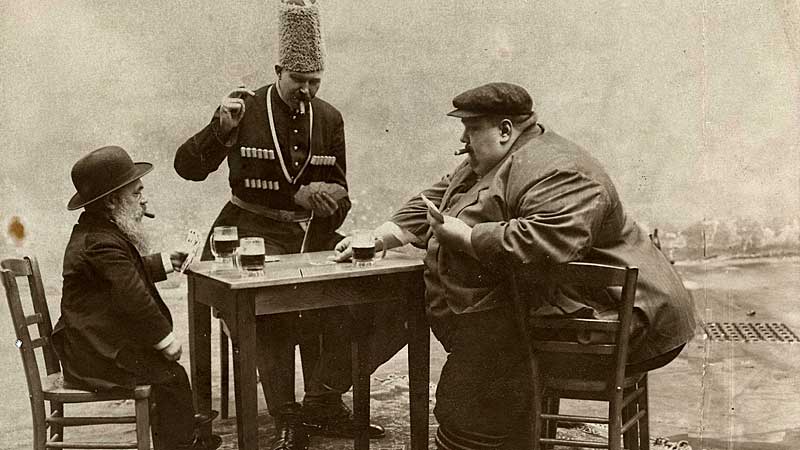Suzanne's "The Main Course of Restaurant Performing" Podcast Interview
by Christian Painter and Roland Sarlot

What We'll Explore
Suzanne will share why and how restaurant performing experience is invaluable for almost every style of magic performance, the importance of learning the details of your work in front of a live audience, why you want to connect with your guests, and the three most important tips to get started in the niche.
Who is Suzanne?
Suzanne is a full-time restaurant performer and corporate magician. In her 35 years of performing, she was voted Close-up Magician at the Year of The Magic Castle, fooled Penn & Teller on their "Fool Us" show as well as consults and teaches magic to other professional magicians.
Running Time:
The following interview has been edited and condensed for clarity.
What you can do
You are welcome to share up to 500 words of the below transcript in a non-commercial purpose provided you credit and link back to our site like this: "The Magic Oracle Business Podcast".
The Interview
Christian Painter: On this insightful episode of the Magic Business Podcast...
Suzanne: The fooling is more the hook, then you can go deeper into them starting to care about you. So if you don't show them in your magic that you care about them, then you won't get back what you want. And what I want is connection.
Christian Painter: Welcome to the Magic Business Podcast, where we share insightful and delightful inner secrets about the business of magic. This is where magic professionals present their real-life experiences and some of their most guarded secrets to help further your career in the magical arts. I'm your host, Christian Painter, in partnership with the MagicOracle.Club, where you can hear all of our Magic Business podcasts.
Suzanne is based out of Minneapolis, Minnesota, where she works full-time as a restaurant close-up and corporate magician. She has been a professional magician for 35 years. She was voted Close-up Magician of the Year of The Magic Castle. She was on Penn & Teller's "Fool Us" and has a distinction of fooling them with her very clever trick, Mother's Love. Suzanne also consults and teaches magic to other professional magicians. I'm really excited to have Suzanne on the show today because she's going to talk about the importance of restaurant work in your overall career as a magician. Welcome to the show, Suzanne.
Suzanne: Hey, thank you very much, Christian. I'm happy to be here.
Christian Painter: So, Suzanne, let's just get right to it. Why should I work restaurant magic? Why should I do it?
Suzanne: Well, I have been a restaurant magician since the very beginning, since the middle '80s, and I have not ever been without at least one restaurant. And there are so many reasons that restaurant magic is important for your career. One, it's easy marketing. People will be more interested in hiring you if they've had a chance to see you. But more importantly, it gives you an opportunity to really hone your skills. You learn a new trick. You've got a place to try it, and you can get 10 instances in a night where you try the trick out, and massage it, and change it slightly. And you can really learn the reason for why the trick works and how to make it even better every single table that you go to. You also get an opportunity to learn good audience management and good audience connection, which is really invaluable for a close-up performer.
Christian Painter: So I like where you're going with the being able to handle all the situations you're going to run into because later, whether you're working platform or stage, you're going to have difficult people, right?
Suzanne: All the time.
Christian Painter: Right. So how is working a restaurant going to help me deal with that?
Suzanne: Well, it gives you an opportunity to learn where the time to breathe is. Do you want me to go into that a little bit more, about the time to breathe?
Christian Painter: I want you to go deep. Do a deep dive, Suzanne. We want to get inside your head and find out what makes you good.
Suzanne: Well, if you have an opportunity to work on a trick 10 times in a row, you're one, going to get the physicality of the trick down really fast. And then, once you get the physical part of the trick, there's more to it than just, "Wow. Did I fool them?" There's times when you get to breathe, and relax, and pull back. And there are nuances to tricks that you will never get if you only do it like a couple of times a month because that's how many times you get to do your big platform show. If you have an opportunity to do it many, many times, you'll know when can I touch the person on the shoulder, and does that change how the trick works? When can I throw my head back and laugh a little bit, and does that change it? And if you can do that 10 different times a night, you're going to really learn the places, the sweet spots of where you can really make that trick really sing, and not just to fool the people but to really sing and to touch them.
Christian Painter: I have read many times where some magicians at a point, as you've said the physicality of the trick, decide how do I best reveal the card? Do I just turn it over? Do I turn it over this way? Do I pause before I turn it? So this is what you're talking about, right?
Suzanne: Yeah, exactly. Exactly. And there might be ways that... Like I learned early on that there are some things that, if I want a reveal to happen or if I want something to happen in the trick, I might say part of a sentence and then your audience is so engaged that they'll complete the sentence for you. Then they will think they're driving the show. And if they think they're driving the show, then it seems a lot more ad-libby. It seems a lot more like "Wow. That was so special, just for me. She did that, just for me." And I asked a question and she did exactly what I said. When in actuality, there's only three or four things that could happen in that trick. But doing restaurant magic allows you to learn those places. And then you can kind of have a database in your head about the possible reactions that you get and then how to drive your audience into having those specific reactions that will pull the trick forward as opposed to you pushing the trick at them. It's more like jazz than it is like just following some script.
Christian Painter: And I think, especially, when you're starting out, these are not even things we think about, right? We don't think about, "Do I pause two beats before I show the reveal or do I reach over and touch someone at this moment to cement that emotion?" So tell me what you have learned in 35 years of restaurant magic that helps you move this in a whole new direction?
Suzanne: I learned early on that the magic is not about me at all. It is something that I am doing and a skill that I have that they don't have, but that doesn't make me above them in any way. And it's really about their enjoyment, not about whether I kill them, or fry them, or "Man, I destroyed that table." It's not about that. It's about "Did I connect with them? Do they like me? Would they want to have a conversation with me if I didn't have a deck of cards in my hand?"
Christian Painter: Oh, interesting. Then I have a question for you. What emotions are you shooting for when you do your magic?
Suzanne: I want them to feel a sense of connection. And yes, you do have to fool them when you do the magic because if you don't fool them, then they're going to judge you on that because they have maybe seen magic on TV or they've seen magic like their Uncle Earl did, pulling a coin out of the ear. And if they can figure it out, they'll shut off, so you do need to fool them. But past fooling them, I don't want it to be about fooling them. And that sounds like a paradox.
Christian Painter: It does. Keep going. I love it.
Suzanne: Yeah, the fooling is more the hook. And once you hook them with the fooling, then you can go deeper into the connection part. Then you can go deeper into them starting to care about you. But you have to show that you care about them for them to care about you. So if you don't show them in your magic that you care about them, if you don't give to them first, then you won't get back what you want. And what I want is connection.
Christian Painter: Now, let's go back to what we kind of stated early in the interview, which was this preparing you for whatever direction you're going if you're not going to be a restaurant magician forever, let's say for that person. And they want to work cruise ships or wherever it is they want to work. This moment and learning how to deal with people... talk about all these different kinds of jerks, and drunks, and challenging people. Tell us how you've learned from those experiences.
Suzanne: Well, I figured out that if you come across a challenging person, if you play tug o' war with them, and you get what I mean by that, you're going to lose. I don't care how great your smackdown line is, how great your, "Hey, I've seen my show and you don't have that many lines," kind of comeback is, you are always going to lose because they have friends with them that they may not necessarily side with the guy always but if you attack their friend, they're going to side with that guy. And so, I learned early on that if I bring the heckler into kind of my backstage, and sort of go, "Oh man, yeah. I know you know how this magic stuff works, too. Let's get them with our knowledge." I kind of like will bring him into the fold, sort of, and kind of wink at him like he knows. That is how you win over the heckler. And once you win over the hardest guy, you win over everybody else. But you can't win them over by being mean to the guy, by shutting the guy down. You have to win him over by connecting with him and giving him what he wants, which is to be the center of attention. Because I, as the magician, I'm not actually the center of attention. And that's where part of the paradox is. I'm coming up and showing oh, my great magical skill, but the show's not about me. The show's about the guy who would try to mess me up. And if the audience sees me handle that guy kindly and gently, and I can win that guy over, wow, I can win anybody over if I can win that guy.
Christian Painter: How many years did it take you before you learned how to deal as well as you now do with those types of people?
Suzanne: Oh, wow. [Long pause]
Christian Painter: Okay. And I just wanted to say that pause that Suzanne just did should show you you're not going to learn this skill in a year. You're not going to learn it in even maybe two years. It takes time, right?
Suzanne: Absolutely. I mean it's all a progression. It's kind of like, you know, how long does it take a musician to be a good musician. I would think that a good musician would always be getting better. Every show I do, I hope I get better. I hope I learn something new in every single show that I do. And I'm not talking about learning a trick. I actually don't add new tricks into my repertoire very often. I change the trick in a minute fashion every show. I try something different. I take a breath at a different place or I wink at somebody at a different place, just to test does that make it better.
Christian Painter: But it's definitely faster in working in a restaurant where you're dealing with that much more often than you would, let's say, on a stage show or a platform show.
Suzanne: Oh, so much faster because let's say I work at one table and it's a really rough table. And I'm putting out fires left and right and it's like, "Boy, I am so glad to be away from that table." Then I take what I've learned from that table and I go to another table immediately after. And I start that show all over again, using whatever I've learned. Even if I didn't intellectually get what I've learned, I still learned something from it. And I move over and I do another table and then that table is a complete success. So it's really weird to have one table, I had to put out fires left and right, and the next table is a complete success. And they're screaming about, "Oh, that's wonderful." And then I compare those and see what was the different feel. And also, I never look at the audience and go, "That was just a sucky audience."
Christian Painter: Really?
Suzanne: I always look at "What did I do in that to not be able to turn that around?" I was going to say, "to turn that sucky audience around." That's funny. What did I do or not do that could turn that particular group around to being on my side? But it's never their fault. It's never their fault.
Christian Painter: Interesting.
Suzanne: It's always my responsibility to get them on my side. It's not their responsibility to come over to my side.
Christian Painter: If I was getting ready to work restaurants for the very first time, give me three tips that you would tell me, "Here's three things you need to do, Christian." What would they be?
Suzanne: This first one that I'm going to say is going to have a little bit of clarification in it. One, get over yourself. So you are not the latest, greatest, best magician in the world to the people you're performing for, you are not the end-all-be-all, because that, I'm going to say, arrogance that would put you in that thought process is going to hinder your connection with the audience. So I'll go back to my original thing, get over yourself.
Christian Painter: Number one, get over myself. What's number two?
Suzanne: Realize that you are there, your reason for being there is to be a liaison for the restaurant. And I'll talk more about that. But it's to be a liaison for the restaurant. It's not to show what a great magician you are. When I am at the restaurant, at all three of the restaurants, all of the servers have realized my value to them because I can make 15 minutes seem like 5 minutes. And when a server is in the weeds, when they're really, really backed up, and they don't even have time to go take a drink order, I can save their night for them. And so my job at the restaurant is to serve the servers and to be there for the servers by entertaining and being entertaining. But my actual purpose is to be in service to the servers and the kitchen.
Christian Painter: Okay. Step one, get over myself. Step two, I'm a liaison for the restaurant. What's my third tip from you?
Suzanne: Always be kind. Always. You never know the people at the table could just be coming from a funeral and they're going out to eat because they don't want to go home and cook. They could be having a fight. Their kid might have just gone off to college and they're missing their kid horribly. You don't know what you're walking into. And so, if you come into it and you're making this be about you and that you're expecting them to do something special for you, and if you're not kind to them, that could destroy, one, your standing with them which will eventually get to the management and two, it can damage magic. There are so many, hobby magicians, not that hobby magicians can't be absolutely fantastic, but there are some hobby magicians that just go, "Oh, yeah. Restaurant magic is easy. You just go in and you just fry them, and you just go in and blow them away." But they're not kind about it. The people at that table, that might be their only time to ever see live magic ever, that they've never seen a live magician ever. And you've just wrecked it for them.
Christian Painter: I think if anything through this interview, what we have learned from you, Suzanne, is that you value this connecting and kind of going beyond just magic but really making a connection with your audience that takes them to another level. That's what I'm getting from you.
Suzanne: Absolutely. Yeah. This is funny. Once you get that connection, if you do make a mistake, they'll love you anyway.
Christian Painter: Oh, nice. I'm going to move on to a really tough question and that is kind of what we started with. And that is, how is working restaurants going to help prepare me as I move on to other magic markets, like cruise ships or things like that? How is this going to help me?
Suzanne: So once you have really gotten good at restaurant magic, where you're getting good connection, you're finding out where you can take a breath, where you can relax, and where you can use all the great kind of misdirection that you would use in a restaurant setting, and you move that into other markets, you're using those same techniques in the other markets, of course. You'll know the tricks inside and out, inside and out to where you don't have to even think about, what's the next move, what's the next line. You can spend all of your energy on connecting with people. And you can use all of the lines that you learned in the restaurant, you can use all of the connection skills that you learned in the restaurant, and that's going to skyrocket your show and the feel of the show and it could be taken into anything.
Can I tell just a little story? I had been doing restaurant magic for 15 years at this point probably, and I got invited to perform at a trade show. Performing at the trade show and this prominent trade show magician, and I won't say who it is, came up and watched my show. And then this prominent trade show magician asked me to go out for a drink after the trade show day and I was told, "Oh my god. I have found my competition." Now, I don't really care for trade show magic so I wasn't much of a competition for this person but, "I finally found my competition and after I found out that you were a restaurant magician and that that's primarily what you did, I realized why you were my competition because I'm performing for, like, the whole room and you're picking out individual people and connecting with individual people. And I learned from you right there something important that I wasn't doing in the way that I do trade show magic." So I taught a very prominent trade show magician, somebody who does trade shows for a living, something new because I was using techniques that I've learned being a restaurant magician.
Christian Painter: And what a high compliment from somebody.
We are at the end of our time but I have had such a blast with you. You have been fantastic and more importantly, I think you've really taught a lot of people this importance of connecting, which I think a lot of times gets lost when we think about all of our flashy magic. The real magic is in the connecting with people. Thank you so much for being on the show, Suzanne.
Suzanne: Thank you. I had a great time talking with you as always.
Christian Painter: Thank you for listening to our "Magic Business Podcast". Please visit the MagicOracle.Club where you can hear all of our Magic Business podcasts and enjoy a vast array of additional magical knowledge. We want to leave you with this quote from Kristen Butler. "Focus more on the people who inspire you rather than the people who annoy you. You'll get much further in life." As always, we at the Magic Oracle wish you continued success on your path in the magical arts.
A Jolly Genie?

The Magic Oracle is a FREE site but I still must pay dastardly server fees! Please, donate ANY amount... $1, $5, $10, why not $1 million?
THANK YOU for keeping magic alive... and me, a Jolly Genie!



